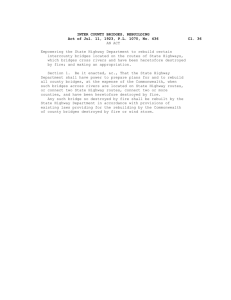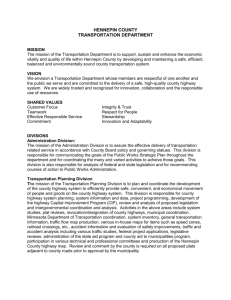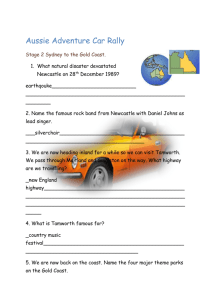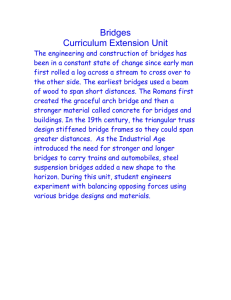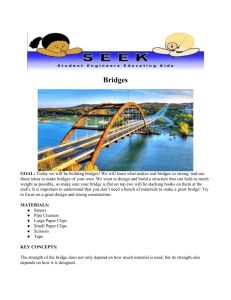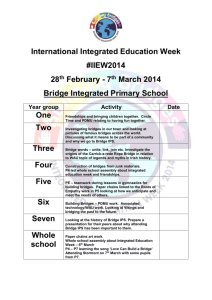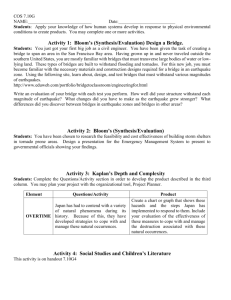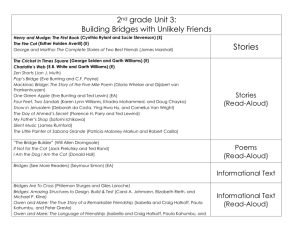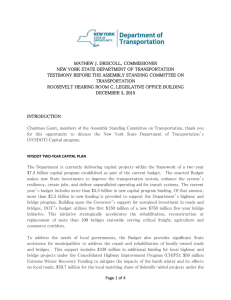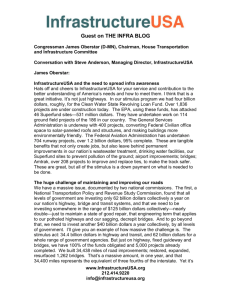Ideas Behind the Pacific Coast Highway
advertisement
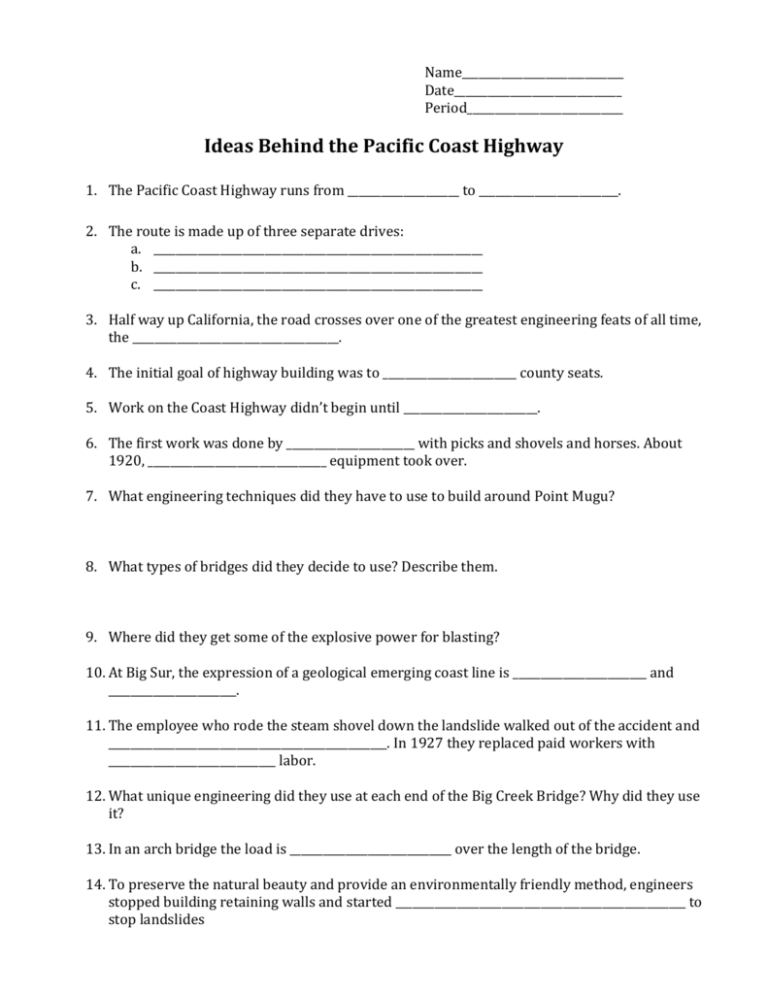
Name_____________________________ Date______________________________ Period____________________________ Ideas Behind the Pacific Coast Highway 1. The Pacific Coast Highway runs from ____________________ to _________________________. 2. The route is made up of three separate drives: a. ___________________________________________________________ b. ___________________________________________________________ c. ___________________________________________________________ 3. Half way up California, the road crosses over one of the greatest engineering feats of all time, the _____________________________________. 4. The initial goal of highway building was to ________________________ county seats. 5. Work on the Coast Highway didn’t begin until ________________________. 6. The first work was done by _______________________ with picks and shovels and horses. About 1920, ________________________________ equipment took over. 7. What engineering techniques did they have to use to build around Point Mugu? 8. What types of bridges did they decide to use? Describe them. 9. Where did they get some of the explosive power for blasting? 10. At Big Sur, the expression of a geological emerging coast line is ________________________ and _______________________. 11. The employee who rode the steam shovel down the landslide walked out of the accident and __________________________________________________. In 1927 they replaced paid workers with ______________________________ labor. 12. What unique engineering did they use at each end of the Big Creek Bridge? Why did they use it? 13. In an arch bridge the load is _____________________________ over the length of the bridge. 14. To preserve the natural beauty and provide an environmentally friendly method, engineers stopped building retaining walls and started ____________________________________________________ to stop landslides 15. How much more did the retrofit on the Bixby Bridge cost than the cost of the original construction? 16. At Devil’s Slide the road was moved to an _______________________ route. At San Francisco, California 1 crosses the ______________________________________________. 17. One of the longest ________________________ bridges in the world, the Golden Gate cost the lives of _________________ men. 18. Why do they use asphalt instead of concrete north of San Francisco? 19. In __________________ a flood destroyed the road and the 101 was rebuilt on higher ground and connected to the state of ____________________________, where it is known as the ___________________ _________________________________. 20. C.B. McCullough is known as Oregon’s __________________________________ for his work on the 101. He designed his bridges according to what was needed for the __________________________. 21. At the Rogue River he used a new method called the Freyssinet technique. How did this work? 22. At Coos Bay, he used a cantilever truss to allow __________________________________________. 23. At Newport he designed a _____________________ of small sturdy bridges _______________________ together across the bay. 24. Much of his work picked up on __________________________ of Europe and modern _______ ______________________________. 25. The biggest challenge was the __________________________ River. At first they used ____________ to get cars across, but finally built a bridge high enough that ___________________ ships could go under. 26. When the last of McCullough’s bridges was completed in tourism on Oregon’s coast highway jumped _________________ percent. 27. The Pacific Coast Highway is one of the most expensive roads in the U.S. to ___________________. 28. Describe these major coast highway disasters: 1938, 1958, 29. What preservation methods are being used to save aging bridges? What happens if a bridge can’t be saved? 30. The Oregon Department of transportation is at the forefront of __________________________________.
